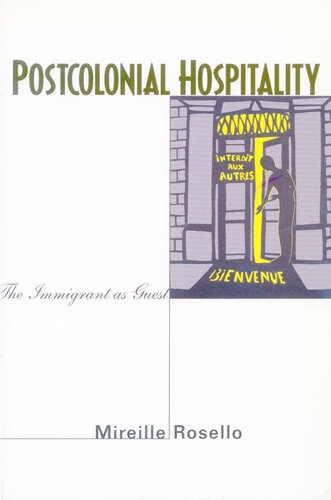

Most ebook files are in PDF format, so you can easily read them using various software such as Foxit Reader or directly on the Google Chrome browser.
Some ebook files are released by publishers in other formats such as .awz, .mobi, .epub, .fb2, etc. You may need to install specific software to read these formats on mobile/PC, such as Calibre.
Please read the tutorial at this link: https://ebookbell.com/faq
We offer FREE conversion to the popular formats you request; however, this may take some time. Therefore, right after payment, please email us, and we will try to provide the service as quickly as possible.
For some exceptional file formats or broken links (if any), please refrain from opening any disputes. Instead, email us first, and we will try to assist within a maximum of 6 hours.
EbookBell Team

4.3
78 reviewsIn recent years, hospitality has emerged as a category in French thinking for addressing a range of issues associated with immigration and other types of journeys. Rosello's book concentrates primarily on France and its former colonies in North and sub-Saharan Africa and considers how hospitality and its dissidence are defined, practiced, and represented in European and African fictions, theories, and myths at the end of the twentieth century. Postcolonial Hospitality explores the ways in which Western superpowers rewrite ideals of hospitality that are borrowed from a variety of sources and that sometimes constitute an incompatible system of values. Each chapter focuses on a problematic moment when hospitality is read either as excessive or lacking: when the host does not give what is ideally expected; when the guest is mistreated rather than protected; when the guest abuses the host rather than being grateful. In considering these issues, the author examines the relationship between ownership and generosity, focusing specifically on the connections among nationalism, immigration, and hospitality. Because the intersections between cultural differences and issues of gender often expose the fragility or arbitrariness of hospitable conventions, the author studies novels, films, and immigrant interviews that explore those moments of crisis when systems of hospitality clash.